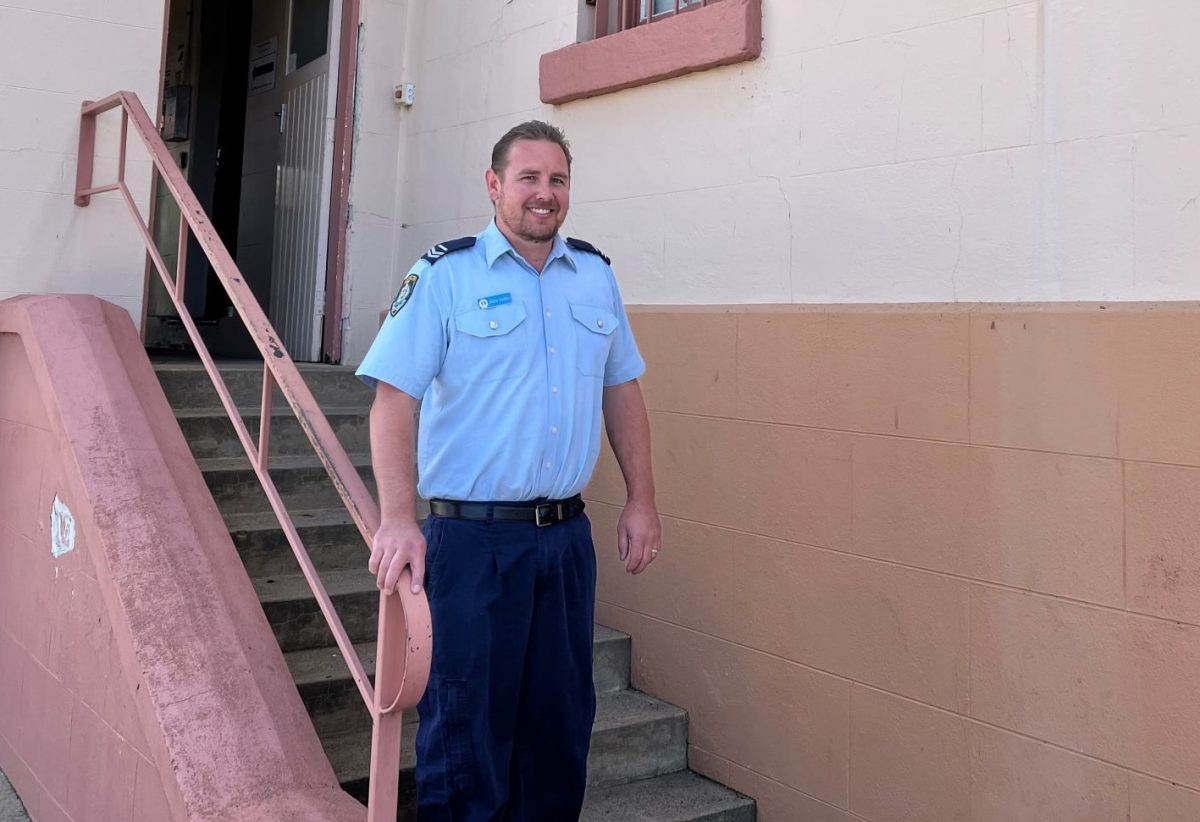
Stephen John McCracken, 31, has been sentenced for running over Senior Constable Jason Farrell last year. Photo: Facebook.
A Canberra man who admitted running over a police officer and leaving him for dead has been sentenced to four years and nine months imprisonment.
It was Stephen John McCracken’s 31st birthday when he found out how long he’d spend behind bars for his crimes, which occurred on 30 August 2021.
Cooma senior constable Jason Farrell was left with a traumatic brain injury, fractured skull and fractured ribs after he tried to arrest McCracken’s co-accused Jaiden Dale Gardner, who currently has warrants out for his arrest.
While Snr Const Farrell was not in Queanbeyan District Court on Thursday (8 September), he was listening via audio link.
The Crown prosecutor Nerissa Keay read his victim impact statement to the courtroom, which contained several of Snr Const Farrell’s supporters.
It detailed how Snr Const Farrell was at home on his dinner break celebrating his oldest daughter’s birthday when he received a call about a stolen car that had been spotted at Nimmitabel. He and his partner came across the stolen Landcruiser and tried to chase it down the highway.
A short time later they saw the Landcruiser parked on the side of the road. The police officers pulled over and got out of their vehicle.
“I have no recollection of what happened after this,” Snr Const Farrell’s statement said.
His next memory was waking up in Canberra Hospital on 8 September 2021. His wife had been told by nurses he “wouldn’t survive the night” but she couldn’t be with him because of COVID restrictions at the time.
Snr Const Farrell detailed how his youngest daughter now suffered from nightmares that he was being run over, and his youngest son was often “uncontrollably upset”.
As a result of his hospital stay, doctors discovered cancer on his thyroid, which he has since had treatment for and is now cancer-free.
“I guess every cloud has a silver lining,” he wrote.
Snr Const Farrell’s family had suffered a “large financial loss” due to his inability to return to full time duties, and he now couldn’t be promoted because of his injuries.
He said he was angry someone could “leave me for dead” without helping or reporting what happened, and that McCracken would be able to function in society.
“I will carry this brain injury with me for the rest of my life,” Snr Const Farrell wrote.
However, he was happy he was the one hit, and not another police officer or innocent person.
“I’m glad it was me,” he said.

Senior Constable Jason Farrell is back at work at Cooma Police Station. Photo: NSW Police.
McCracken’s defence lawyer Duncan Berents said while it was accepted the offences were serious and there was a “high degree of moral culpability”, he argued the offending had occurred over a “relatively short space and relatively short time”.
He pointed to a psychological report which said McCracken had adjustment disorder with anxiety and depression at the time of his offending, and his moral culpability could be reduced because of McCracken’s addition to drugs and “unfortunate upbringing”.
Mr Berents also said McCracken was clearly remorseful, and his actions reflected that, as he had undertaken a 12-week drug rehabilitation program while in custody.
“His actions speak louder for his contrition and insight,” he said.
Mr Berents also argued for a shorter prison sentence as McCracken was in danger of becoming “institutionalised” and his prospects of rehabilitation depended on “structure rehabilitation” upon his release.
“This is a person who has spent a significant period in institutions and has struggled upon release,” he said.
In response, Crown prosecutor Keay described McCracken’s offending as “significantly serious”, as Snr Const Farrell was on the bonnet of the car for about 30 metres before he fell face-down on the road.
She said McCracken’s disadvantaged background, drug addition and prior stints in prison showed he “clearly struggled to adjust to lawful community life”.
Ms Keay took issue with what she described as McCracken’s “second-hand expressions” of remorse and that while he might not be “professing the same love of methamphetamine” as he had in the past, he hadn’t made significant enough steps towards change.
In handing down her sentence, Judge Nicole Noman said while McCracken’s offending couldn’t be proven as deliberate, it was “highly reckless”.
She didn’t accept McCracken’s reasons he didn’t stop because he was high on meth and was “shocked” in the first instance.
“The victim was a police officer acting in the execution of his duty, and this is a significant factor,” Judge Noman said.
“Police officers are not heroes by virtue of their job … [but] he had every right to be protected from criminal conduct.”
She judged McCracken’s prospects of rehabilitation without support as “currently poor” and did “not determine him to be institutionalised”.
“There is a clear concern about protection of the community … no sentence other than full-time imprisonment is appropriate,” Judge Noman said.
She also said she felt his mental health issues did not impact on his offending, and that he “well knew what he was doing”.
When handing down her sentence, Judge Noman warned McCracken that he was at a crossroads with deciding his future.
“You are at a point in your life … it’s time to choose the right path,” she said.
“Ultimately it’s a matter for you … if you want to turn your life around.”
McCracken received four years and nine months with a non-parole period of three years and three months. With time served, he will be eligible for parole on 21 April 2025.
Original Article published by Claire Fenwicke on Riotact.














